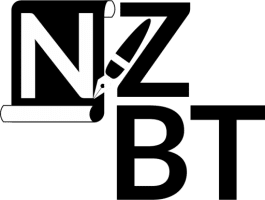As a Privacy Officer, you play a crucial role in your organization’s privacy compliance and data security. Your responsibilities are vast and varied, ranging from ensuring compliance with privacy laws to managing data protection and security. In this comprehensive guide, we’ll delve into the key responsibilities of a Privacy Officer and provide valuable information to help you excel in your role. We’ll also introduce you to New Zealand Business Tools (NZBT), a company that provides specialist advice and training in these areas.
Key Responsibilities of a Privacy Officer
1. Privacy Compliance
As a Privacy Officer, one of your primary responsibilities is to ensure that your organization complies with all applicable privacy laws, regulations, and guidelines. This includes staying updated with the latest privacy requirements and ensuring that your organization’s practices align with these standards. Non-compliance can result in hefty fines and damage to your business’s reputation.
2. Privacy Policies and Procedures
You are also responsible for developing and maintaining privacy policies, procedures, and practices specific to your organization’s needs. These policies should be communicated effectively to all employees, contractors, and other relevant parties who handle personal information. Regular reviews and updates of these policies are necessary to keep up with changing regulations and business practices.
3. Data Protection and Security
Working closely with your organization’s IT and security teams, you will implement and maintain appropriate data protection and security measures. This involves assessing potential risks to personal information and developing strategies to mitigate those risks. Regular audits and updates of security measures are crucial to ensure ongoing protection of personal data.
4. Privacy Impact Assessments (PIAs)
Conducting privacy impact assessments for new projects, initiatives, or system changes within your organization is another crucial aspect of your role. PIAs evaluate the privacy implications and potential risks associated with the collection, use, and disclosure of personal information. These assessments help to identify and address privacy risks before they become issues.
5. Privacy Training and Awareness
Providing privacy training and awareness programs to employees is essential to ensure a culture of privacy within your organization. This includes educating staff on privacy policies, data handling best practices, and their responsibilities regarding personal information. Regular training sessions and updates are necessary to keep staff informed about the latest privacy practices and regulations.
6. Data Subject Rights
Handling and responding to individuals’ requests related to their privacy rights, such as access to personal information, corrections, and complaints, is another key responsibility. You must ensure that your organization has processes in place to address such requests within the required timeframes. This includes maintaining a clear and accessible process for individuals to exercise their data rights.
7. Privacy Breach Management
In the event of a privacy breach, you will take a lead role in managing the incident, including investigation, containment, notification, and remediation. You will work with relevant stakeholders, including affected individuals, regulators, and internal teams, to address the breach appropriately. This includes developing and maintaining a clear incident response plan to ensure effective management of any privacy breaches.
8. Privacy Advocacy and Guidance
As a Privacy Officer, you will serve as a point of contact for privacy-related queries and concerns from both internal stakeholders such as employees and external individuals such as suppliers and clients. You will provide guidance and advice on privacy matters and serve as a liaison with regulatory authorities. This includes advocating for privacy considerations in business decisions and providing guidance on privacy best practices.
How NZBT Can Help
At New Zealand Business Tools (NZBT), we understand the complexities of privacy compliance and data security. We provide specialist advice to businesses and organizations to help them understand and use the Privacy Act 2020. We also offer training specifically for Privacy Officers, Business Owners and their staff. to help business owners and their staff.
Our specialist Privacy Compliance team can assist with the upgrade and implementation of internal and extremal Privacy Policies and assist with Privacy Impact Assessments (PIA’s) as required. Our remote Privacy Officer services is available for businesses who do not have an inhouse Privacy Officer or who want to provide extra support for their Privacy and Data Security team.
With NZBT, you can be confident that your business is in good hands. We are committed to helping you navigate the complexities of privacy compliance and data security, ensuring that your business is protected and your customers’ trust is maintained.
Key Points
The role of a Privacy Officer encompasses a wide range of responsibility from Privacy Impact Assessments, the maintenance of existing Privacy Policies though to responding to responding to Personal Information requests within the specified timeframes and assessing and responding to Privacy Breaches as they occur.
Remember, privacy compliance and data security are not just about avoiding penalties; they’re about protecting your business and building trust with your customers. With the right knowledge and support, you can ensure that your business is well-equipped to handle these important aspects.
You can find more information on our website. Privacy Compliance

